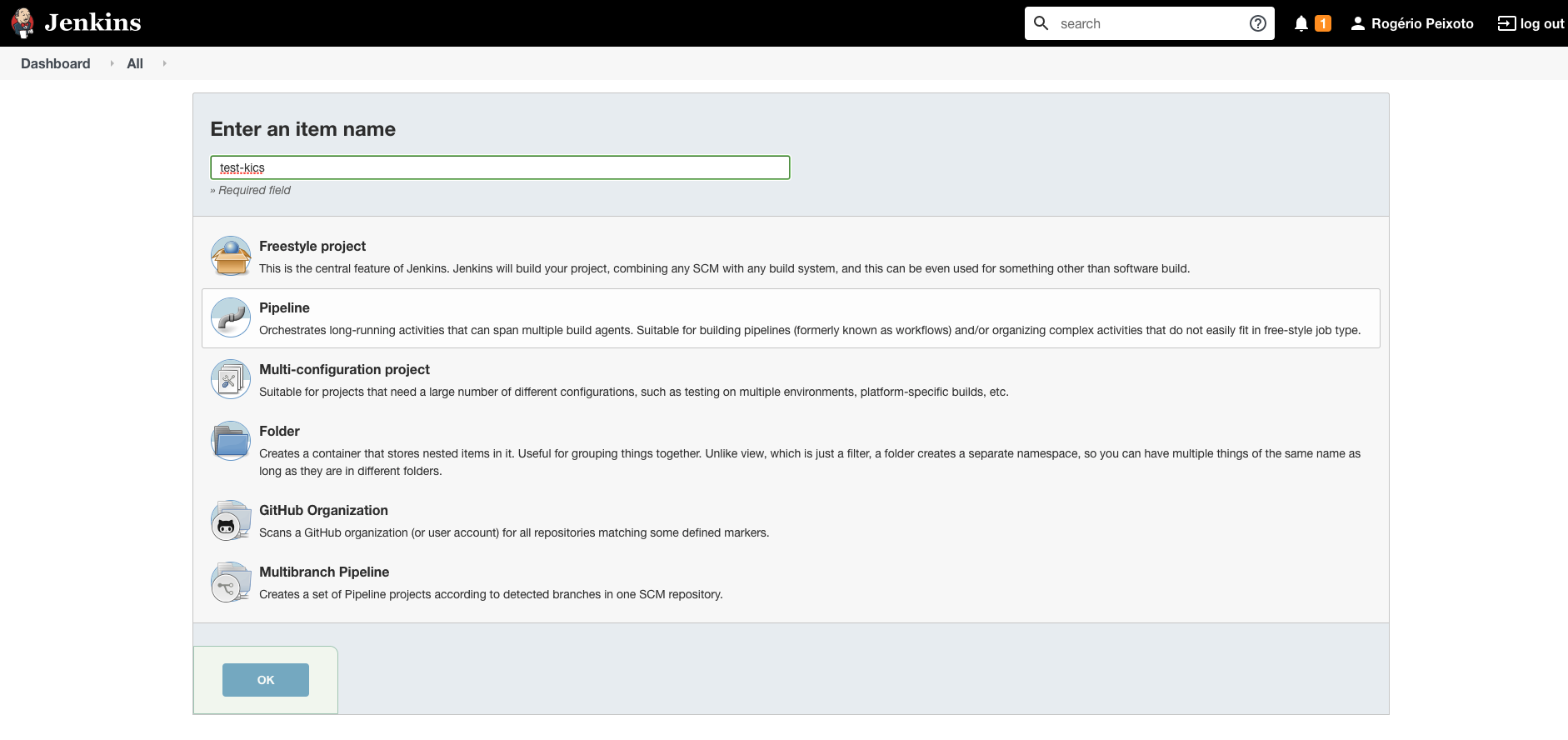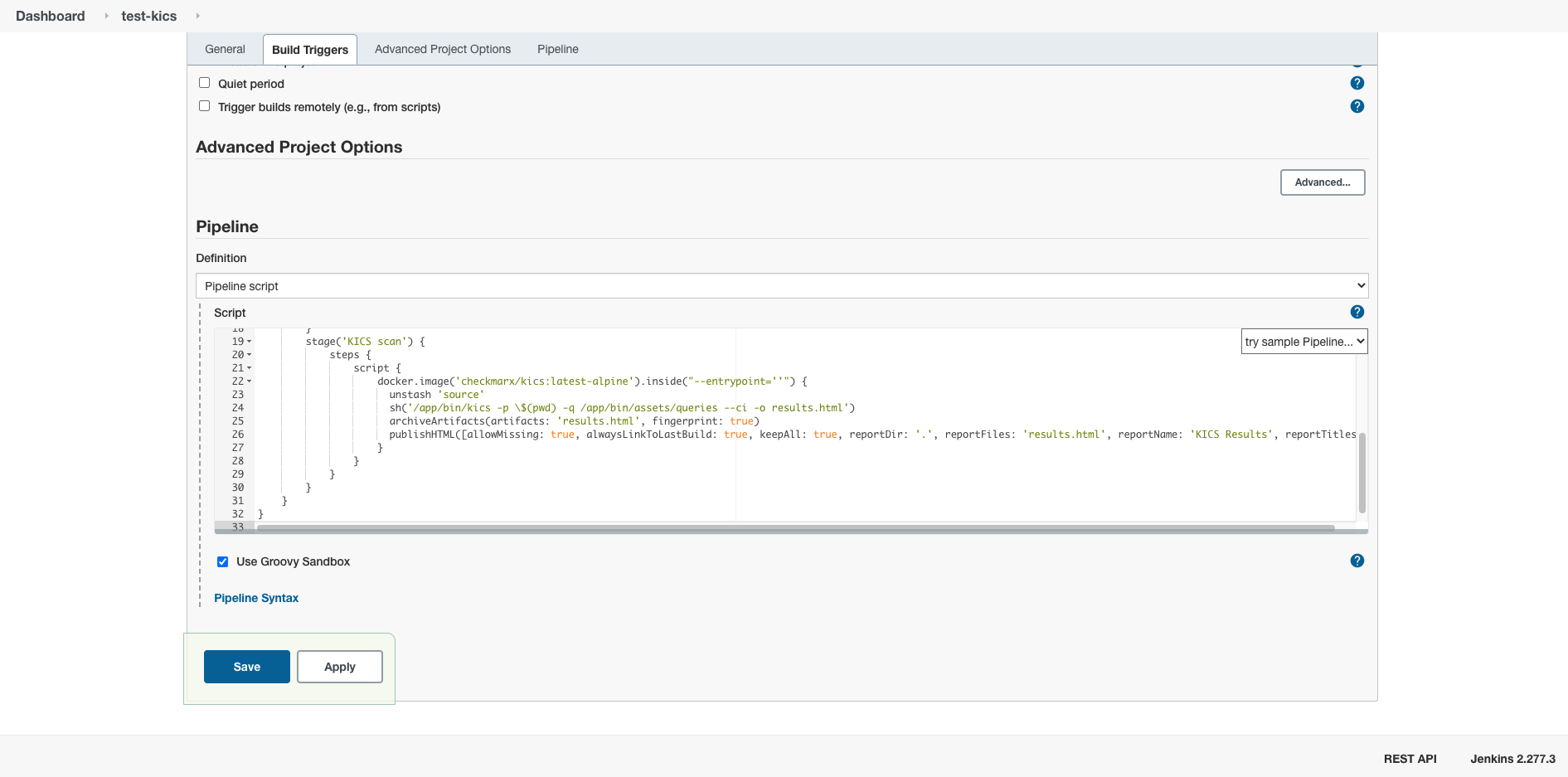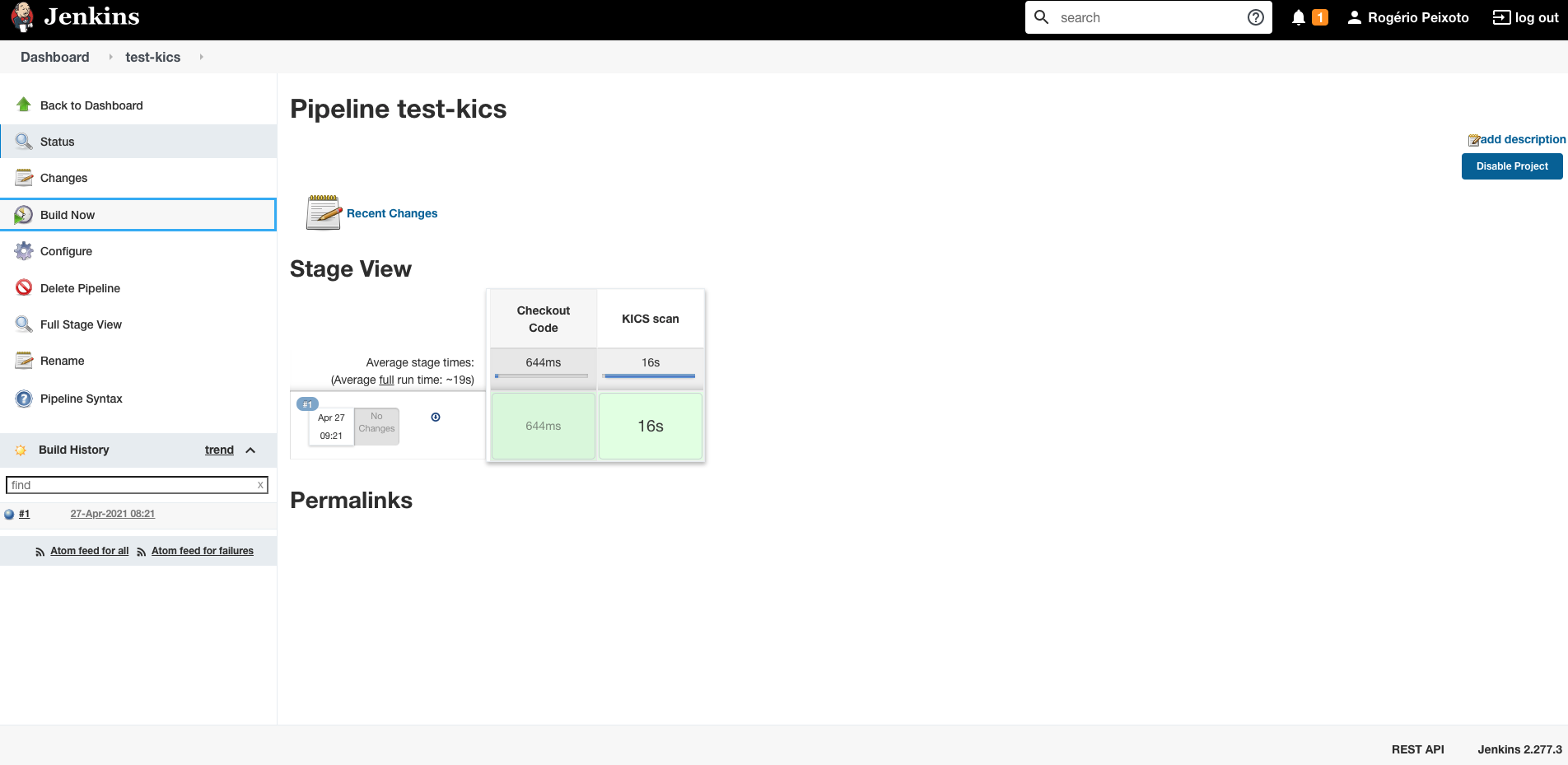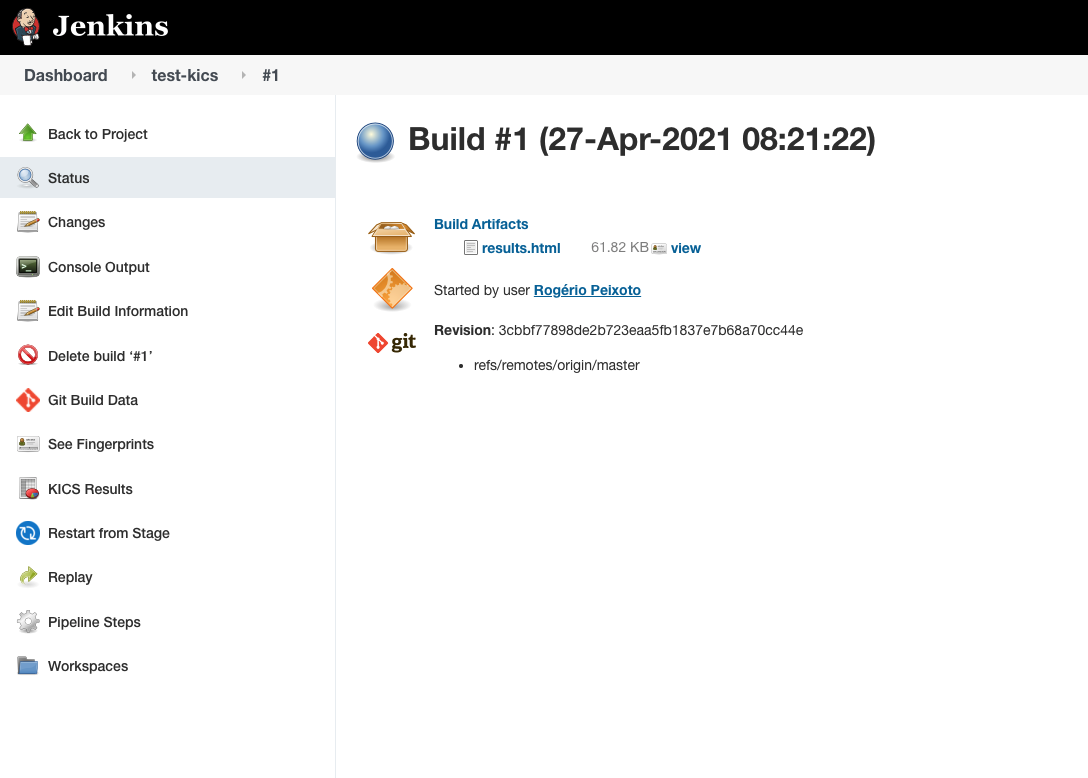You can integrate KICS into your Jenkins CI/CD pipelines.
This provides you the ability to run KICS scans as a stage in your pipeline.
Create a new pipeline clicking on New Item on the left menu bar, then fill in the name of your pipeline and select the option "pipeline":
Paste one of the pipeline examples bellow:
Save and run your pipeline.
Click on the build number to download the reports stored as artifacts.
The following pipeline uses downloads KICS binaries and place them under /usr/bin/kics before scanning a project:
pipeline {
agent any
stages {
stage('Checkout Code') {
steps {
git(branch: 'master', url: 'https://github.com/GoogleCloudPlatform/terraform-google-examples')
}
}
// Other stages ...
stage('KICS scan') {
steps {
installKICS()
sh "mkdir -p results"
sh(script: '/usr/bin/kics scan --ci --no-color -p ${WORKSPACE} --output-path results --ignore-on-exit results --report-formats "json,sarif,html"')
archiveArtifacts(artifacts: 'results/*.html,results/*.sarif,results/*.json', fingerprint: true)
}
}
}
}
def installKICS(){
def installScript = '''
LATEST_VERSION=1.2.4
if ! command -v /usr/bin/kics; then
wget -q -c https://github.com/Checkmarx/kics/releases/download/v${LATEST_VERSION}/kics_${LATEST_VERSION}_Linux_x64.tar.gz -O /tmp/kics.tar.gz
tar xfzv /tmp/kics.tar.gz -C /usr/bin
rm -f kics.tar.gz
fi
/usr/bin/kics version
'''
sh(script: installScript)
}The following pipeline uses KICS docker image to scan a project and publishes the HTML report in Jenkins.
Plugins required:
pipeline {
agent {
docker {
image 'ubuntu:latest'
}
}
options {
timeout(time: 30, unit: 'MINUTES')
buildDiscarder(logRotator(numToKeepStr: '30', artifactNumToKeepStr: '30'))
disableConcurrentBuilds()
}
stages {
stage('Checkout Code') {
steps {
git branch: 'master', url: 'https://github.com/GoogleCloudPlatform/terraform-google-examples'
stash includes: '**/*', name: 'source'
}
}
stage('KICS scan') {
steps {
script {
docker.image('checkmarx/kics:latest').inside("--entrypoint=''") {
unstash 'source'
sh('/app/bin/kics scan -p \'\$(pwd)\' -q /app/bin/assets/queries --ci --report-formats html -o \'\$(pwd)\' --ignore-on-exit results')
archiveArtifacts(artifacts: 'results.html', fingerprint: true)
publishHTML([allowMissing: true, alwaysLinkToLastBuild: true, keepAll: true, reportDir: '.', reportFiles: 'results.html', reportName: 'KICS Results', reportTitles: ''])
}
}
}
}
}
}The report will be published in pure HTML by default, if you want to enable your browser to load css and javascript embedded in the report.html you'll have to configure a custom Content-Security-Policy HTTP header.
| 📝 WARNING |
|---|
| Only disable Jenkins security features if you know what you're doing |
Go to Manage Jenkins > Script Console
Paste the following script and run:
System.setProperty("hudson.model.DirectoryBrowserSupport.CSP", "sandbox allow-scripts; default-src *; style-src * http://* 'unsafe-inline' 'unsafe-eval'; script-src 'self' http://* 'unsafe-inline' 'unsafe-eval'");Jenkins will exhibit the following warning:
The default Content-Security-Policy is currently overridden using the hudson.model.DirectoryBrowserSupport.CSP system property, which is a potential security issue when browsing untrusted files. As an alternative, you can set up a resource root URL that Jenkins will use to serve some static files without adding Content-Security-Policy headers.



